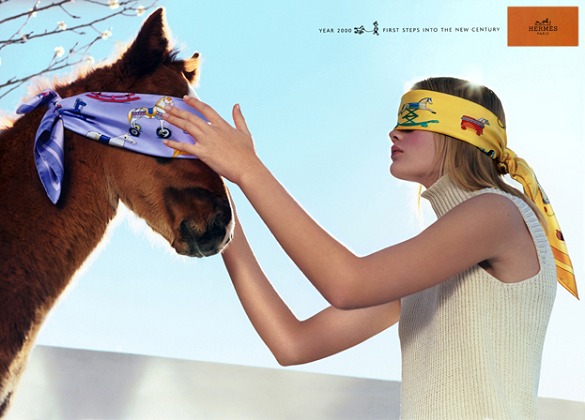LVMH once again announces record financial results. This is partly due to the conglomerate’s ability to create significant consumer desire and thereby increase the prices of its luxury products. Similarly, Rolex, Chanel, Hermès, Rolls-Royce, Lamborghini, and Ferrari have also been able to substantially increase prices, with no brand implementing any discounts or offers.

This outcome is driven by strong growth, propelled by customer trust in luxury brands — particularly in the investment potential of these labels. In contrast, Tesla and Peloton are among the many brands that have chosen to discount, causing both consumers and investors to feel uncertain and reducing trust.
Discounting and diving into frequent promotional programs are among the fastest ways to destroy brand equity. Moreover, in the realm of high-end and luxury, discounting becomes an even more dangerous growth trap. It may stimulate short-term sales, but the effectiveness typically only lasts a short time and significantly diminishes trust in a brand.
The ability to raise prices for luxury brands is a crucial factor in scaling growth. The success of leading brands within the LVMH group is the result of focusing on building brand value, storytelling, and executing precise brand experiences.
Lessons Worth a Fortune Behind this luxury market landscape, senior managers of luxury brands also lament that pricing is one of their main headaches.
That’s because traditional brand-building strategies no longer work as effectively as they once did. The emphasis on brand building and storytelling at the point of sale in many cases remains too focused on asserting superiority and luxury. However, as most brands position themselves as the best, persuading customers about product quality is no longer as easily achieved as before.
Typically, brand storytelling focuses heavily on highlighting the outstanding features or allusions to product quality. However, instead of conveying what a brand wants to emphasize, brands should actually communicate their role in consumers’ lives. Only when customers feel and recognize the difference through brand attributes and personality will they be willing to consider and pay for premium-priced items.
If a brand fails to change its narrative and cannot clearly explain to customers what its value proposition is, then the brand will not be able to raise prices. Take beauty brands, for example. In today’s beauty world, having beautiful packaging and a perfect formula is not enough. Because those are already expected in the product’s price and market demand. Therefore, they are not special.
This is something many brands overlook. They overestimate their influence on customers’ decisions and believe that consumers spend a lot of time analyzing their purchasing options.
LVMH once again announces record financial results. This is partly due to the conglomerate’s ability to create significant consumer desire and thereby increase the prices of its luxury products. With algorithms suggesting or recommending brands that consumers see on their social media feed, the only way for brands to reach people and stimulate consumer desire is by creating resonating content with the target audience. To do that, a brand’s storytelling must clarify the emotions the brand desires to evoke in potential customers. This approach creates better conditions for brands to stand out and differentiate themselves.
Luxury brands create their value through their own stories. In other words, the story — not the product — is the issue. When a story cannot distinguish itself from the stories told by other brands, then that brand essentially has no chance of differentiating its other goods.
According to Équité Research, 95% of purchasing decisions for luxury brands are made during the consumer journey on digital platforms. It can be seen that these brands are at risk of falling behind.
However, many brands make the mistake of equating high price tags with perceptions of luxury. Creating extremely high value must precede the price rather than the other way around. The most successful luxury brands in the world can maintain their leadership position over brands in the same industry because they focus on excellent storytelling and how they convey their stories. They explain their desires, influence in culture, and define their own success.
Brands that focus too much on defining specific and detailed aspects of what customers want will not have many choices or opportunities to increase prices, thereby increasing brand value, leading to potential danger for their future.
Brands with emotionally charged stories to tell and clarify their role in customers’ lives will have more opportunities to increase prices because they create extremely high value.
This is an article expressing the author’s personal perspective. Daniel Langer, dubbed one of the “Top Luxury Leaders to Follow Globally,” is the CEO of luxury brand strategy, lifestyle, and consumerism company Équité, and is also a professor of luxury brand strategy and valuation at Pepperdine University in Malibu, California.


Related post
5 Tips to Style Hoodies on Cold Winter Days
As winter settles in, many of us find ourselves reaching for cozy essentials that provide warmth and comfort. One such wardrobe staple is the hoodie.
The Truth Behind the Rumor ‘Santa Claus Is Ugly’ That Surprises Many
As the holiday season approaches, the character of Santa Claus emerges in various forms, his iconic red suit and white beard eliciting warmth and joy
Guide to Creating a Heavy Metal Sound in the Style of Tony Iommi
Heavy metal is a genre rich with history and technical prowess, and few guitarists have influenced its sound as profoundly as Tony Iommi, the legendary
Breaking Down the Key Tactical Edgeas in the Oakland Raiders Lineup
Breaking Down the Key Tactical Edges in the Oakland Raiders’ Lineup reveals not just a football team but a storied franchise with an indomitable spirit.
The Most Heartwarming Moments of Spider Man On Screen
The world of Spider-Man is not just filled with thrilling battles and breathtaking stunts; it’s a tapestry woven with moments of profound empathy, love, and